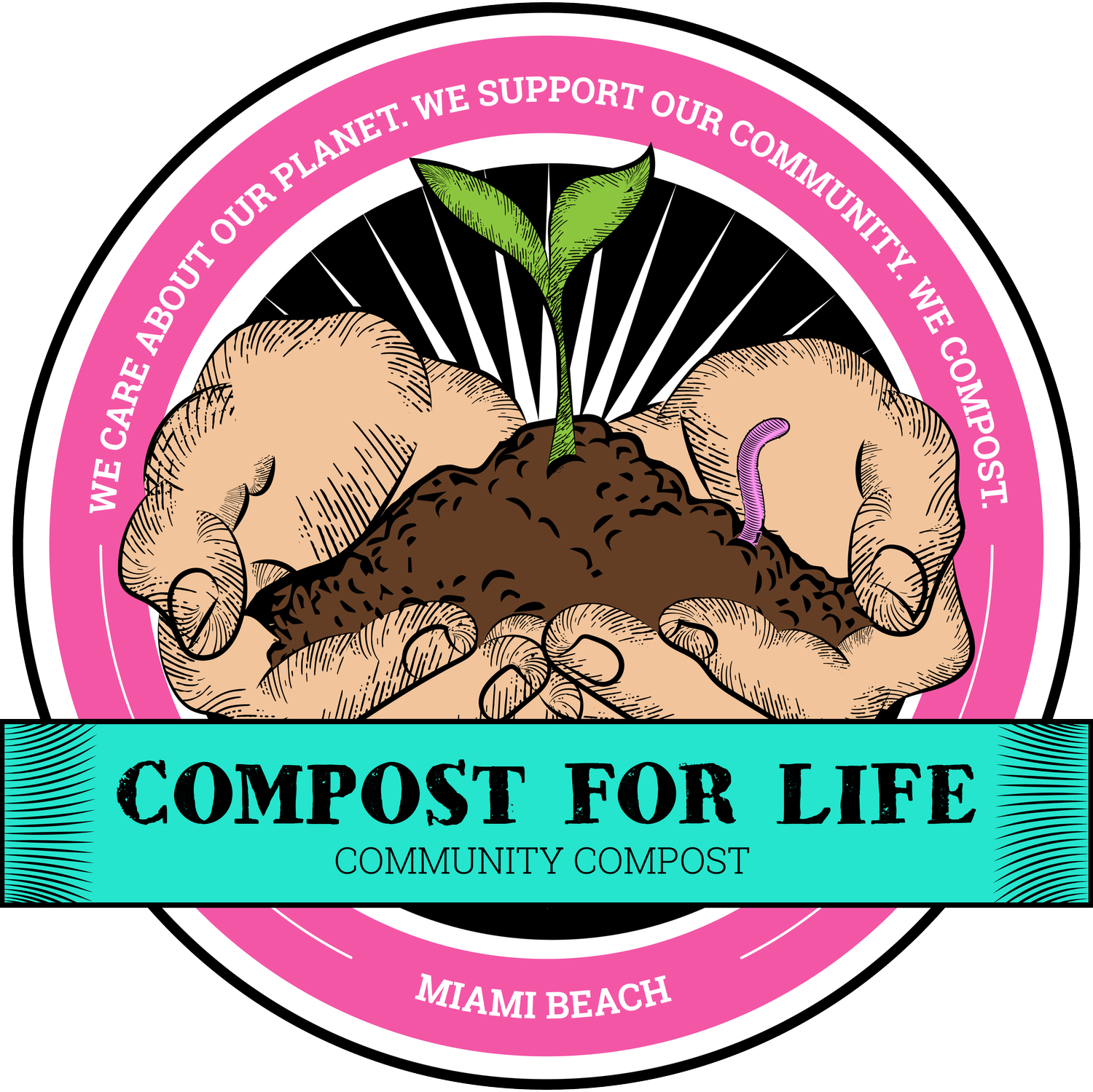FAQs
-
Composting is like nature's recycling bin. You toss in organics like food scraps and dry leaves, and over time, with the help of tiny bugs and microbes, it transforms into a magical, nutrient-packed soil booster for your plants. It's like giving your kitchen leftovers a second life to make your garden happy!
-
Key Benefits about composting:
- When you compost your are giving back to nutrients to the soil, staying in balance with our environment
- When you divert your food scraps from ending in landfills, you are avoiding the production of Methane gas (Green house gas 21x more potent that CO2)
- You will be supporting local farmers and reducing the need to herbicides and pesticides
- Compost has the ability to store carbon instead of being release into the atmosphere, preventing global warming
- Compost can absorb water reducing the risk of flooding
- Composting is so rich in nutrient that it is a soil amendment that can rescue eroded land so it can become fertile again.
Every year, Miami Dade produces enough organic material to fill Multiple Marlin Parks. Diverting compostable material places less pressure on our landfills, which are slowly running out of space. By contrast, composting takes nutrient-rich material, accelerates its breakdown, returns it to nature, helping to grow trees, gardens, and crops.
You want to reduce your carbon footprint. Compost provides carbon sequestration.In other words, composting will help capture carbon dioxide, helping you reduce your carbon footprint. If you want to learn more, please visit the link to EPA website here.
By composting food scraps and other compostable material, you greatly reduce the amount of material going into your trash dumpster. This means a reduction in frequency of trash pickups, saving you money.
-
Fuits, Veggies, Eggshells, Breads (no sugars), Clam Shells, Pastas, Grains, Rice, Cereal, Legume, Peanuts, Pistachios, Brown Paper, Non-Glossy paper, Paper Towels, Coffee grounds, filters and tea bags (please take out any staples before).
Please make sure to remove small stickers from fruits, rubber bands, no plastics bags. You can use compostable bags as liners.
-
We help turn ALL of your organic material back into soil at our local farm in Cutler Bay, FL, where it is processed for 4 - 6 months. After the process is complete we donate to local farmers. You may also claim your compost every 6 months and use it for your garden and/or landscaping.
Finished compost can also be purchased from our SHOP
-
Our drivers are trained to spot contamination and remove it from the compost stream. If contamination is noted during service our driver will remove the contaminant and you will receive an email and a physical tag on your bin to let you know what was not compostable in your bin and why. If the contamination is severe, our driver may deem your bin unserviceable. If contamination is ongoing with no improvement, contamination fees may be assessed.
-
We have no issue with bin sharing but will only accept payment from ONE person, which is the location where the bin is kept. Contamination issues and schedule changes will only be communicated to this one person.
-
We track every pound of food scraps your divert from landfills and your positive impact into the environment. Go to your portal and log in. You will see in your dashboard the total amount you have diverted and the difference you our your business is making.
-
Claiming your free compost is fairly easy. All you have to do is click here to log into our portal with your account credentials, and then click shop. You'll see that one of the options in our shop is the free compost with a soul. Add it to your cart, check out and you are good to go. Your free compost will be delivered on your next service date.
Please remember that you are entitled to claim your free compost once every six months.
-
If the compostable liner is broken or has torn, you can toss your organics directly into the bin. We use liners for easier cleanup, but it's okay to skip them if they tear. Just remember to keep plastic bags out to avoid compost contamination.
